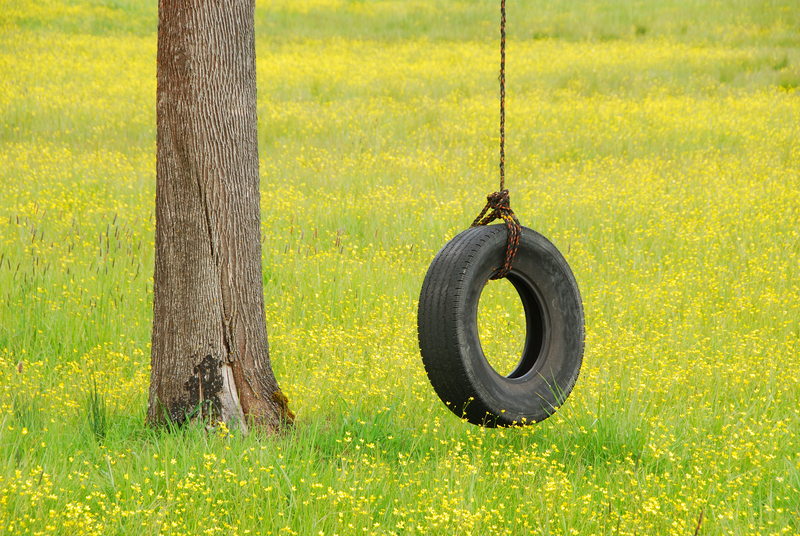Getting Involved with Recycling in Your Area
Posted on 29/04/2024
Recycling has become an essential practice in today's world as we strive towards a more sustainable future. With the growing concern for the environment, many individuals are looking for ways to reduce their carbon footprint and make a positive impact on the planet. One simple and effective way to do so is by getting involved with recycling in your area. Not only does it benefit the environment, but it can also bring about a sense of community and responsibility. In this article, we will discuss the importance of recycling, ways to get involved in your local recycling efforts, and the pros and cons of this practice.
The Importance of Recycling:
Recycling is the process of converting waste materials into reusable objects. It helps reduce the amount of waste sent to landfills, conserves natural resources, and reduces pollution. Every year, millions of tons of waste end up in landfills, causing environmental degradation and health hazards. By recycling our waste, we can help mitigate these negative impacts.

Getting Involved with Recycling in Your Area:
1. Educate Yourself: The first step to getting involved with recycling in your area is to educate yourself about what can be recycled and where. Each municipality has different guidelines for recycling, so it's important to familiarize yourself with them. You can find this information on your city or town's website or by contacting your local waste management department.
2. Sort Your Waste: Properly sorting your waste is crucial for effective recycling. Make sure to separate paper, plastic, glass, and metal items from non-recyclables before throwing them out. This will help reduce contamination in the recycling stream and ensure that your recyclables are processed correctly.
3. Set Up a Recycling Station: Having a designated area at home for storing recyclables will make it easier for you to sort them and take them to your local recycling center. Make sure to label bins or containers according to the type of recyclable they will hold to avoid mix-ups.
4. Participate in Community Recycling Programs: Many communities have organized recycling programs that offer curbside pick-up or drop-off locations for recyclables. Find out if your area has such a program and make use of it. This not only makes recycling more convenient, but it also supports your community's efforts to minimize waste.
5. Start a Garbage Pick-Up Group: Another great way to get involved with recycling is by organizing a group to pick up litter and recyclables in your local area. It's a fun and effective way to keep the environment clean while promoting recycling among your neighbors and friends.
6. Volunteer at Local Recycling Events: Check for any upcoming events in your area that promote recycling, such as e-waste collection drives or plastic bag exchanges. These events often require volunteers to help with sorting and collecting materials, giving you an opportunity to contribute to the cause and meet like-minded individuals.
The Pros and Cons of Recycling:
Pros:
1. Reduces Waste: Recycling helps divert materials from landfills, extending their lifespan and saving valuable space.
2. Conserves Natural Resources: By using recycled materials, we reduce the need for extracting raw materials from natural resources, preserving them for future generations.
3. Reduces Greenhouse Gas Emissions: Recycling produces less carbon emissions compared to waste disposal methods like incineration or landfilling, reducing our carbon footprint.
4. Promotes Sustainability: By reusing materials, we can reduce the need for new products to be produced, ultimately leading to a more sustainable society.
5. Creates Jobs: Recycling involves multiple stages, from collection to processing, providing employment opportunities in various sectors of the economy.
Cons:
1. Can be Time-Consuming: Sorting recyclables and taking them to recycling centers can take time and effort.
2. Difficulties with Contamination: Contaminated recyclables can disrupt the recycling process, making it challenging to recycle certain materials.
3. Not All Materials are Recyclable: Not all materials can be recycled, and some may require specialized facilities or processes, making recycling more complicated.

Tips for Effective Recycling:
- Reduce waste by buying products with minimal packaging or choosing reusable items over single-use ones.
- Rinse food containers before recycling them to avoid contamination.
- Break down or flatten boxes to save space when storing them for recycling.
- Avoid putting hazardous waste like batteries or electronics in your regular recycling bin. Look for specific drop-off locations or events for these types of materials.
Takeaways:
Recycling is an essential practice that benefits the environment and promotes a more sustainable future. By educating ourselves and taking simple steps, we can get involved in our local recycling efforts and make a positive impact on the planet. However, it's important to recognize the pros and cons of recycling and find ways to overcome any obstacles that may arise.
In conclusion, getting involved with recycling in your area is not only a responsible choice but also a rewarding experience. It not only helps protect the environment but also brings individuals together towards a common goal. So let's do our part in promoting a greener and sustainable future by actively participating in recycling initiatives in our communities.
Latest Posts
How to Separate Trash Efficiently
Ways to Reduce Your Environmental Impact






